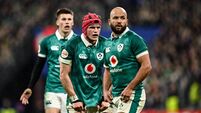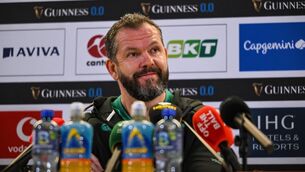Making sure Ireland call the tune on Saturday
If he remembers what happened the last time Ireland collided with Wales in Wellington, the old boy ought to be curious to find out whether an odd piece of history is about to repeat itself.
Rugby does not play that big in Bremen and there is a fair chance the whole tournament will pass the place by because the Germans have better things to do.













